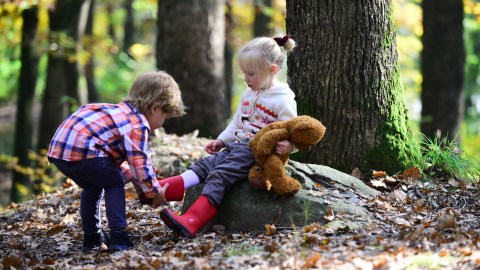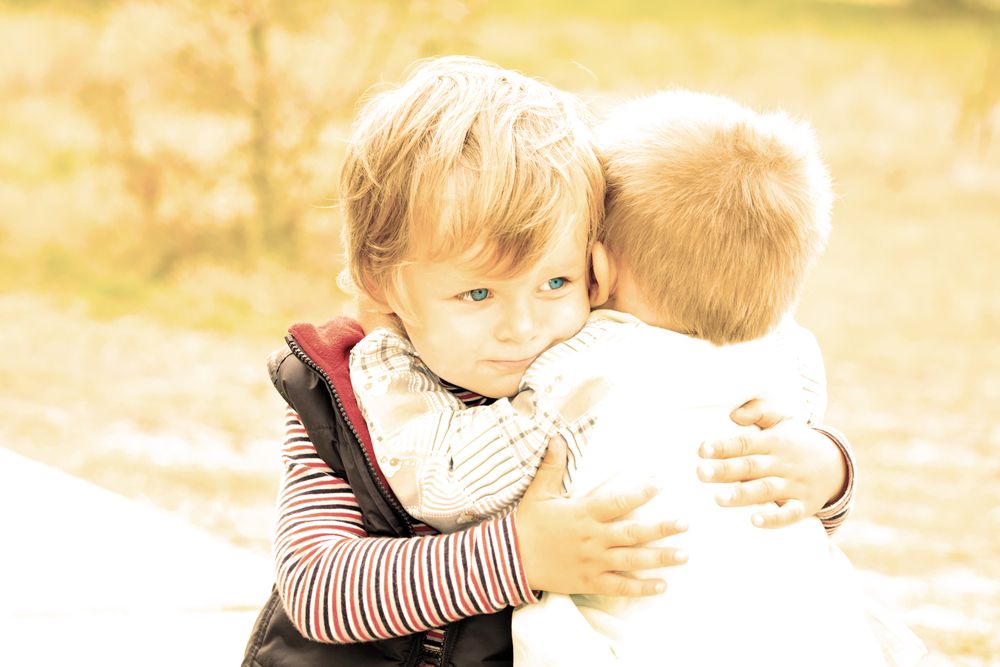Random acts of kindness are rare. There is a simple — and surprising — reason

- Unsolicited acts of kindness generally boost the well-being of both givers and receivers, so why aren’t they performed more often?
- Research suggests that people are afraid that their kind acts will be misinterpreted. People also undervalue how good an act of kindness will make a receiver feel.
- If you want to perform an act of kindness for someone, don’t overthink it. Just do it!
Most people want to be nicer, yet when it comes to performing acts of kindness for others, they hold back. Researchers are now pinpointing a few simple, yet surprising, reasons why and motivating us to overcome them.
The Kindness Test
In August of last year, BBC Radio 4 teamed up with psychologists at the University of Sussex to launch the Kindness Test. More than 60,000 people from 144 countries completed an online questionnaire all about being nice to others.
Among the many queries, respondents were asked to list factors that prevented them from carrying out kind acts. The most common response by far was fear of misinterpretation. Survey takers thought, for example, that others might be insulted by their helpful offers or perceive that a random gift came with ulterior motives.
But results from the Kindness Test also showed that this social anxiety is unwarranted. Fewer than one percent of people replied that they would be embarrassed by receiving an act of kindness. Instead, most said that they would feel “happy,” “grateful,” or “loved.” Since being nice tends to boost well-being, acts of kindness really are a win-win.
A study published recently reinforced the findings of the Kindness Test. Amit Kumar, an assistant professor of marketing at the University of Texas-Austin, and Nicholas Epley, the John Templeton Keller professor of behavior science and director of the Center for Decision Research at the University of Chicago, teamed up to conduct a series of experiments seeking to discover why people don’t perform acts of kindness more often.
In one, Kumar and Epley tasked MBA students with performing two acts of kindness, one for a friend and one for a stranger. The acts could be anything, from small, like helping someone carry groceries, to big, like paying for someone’s meal. After each act, MBA students asked for the recipients’ emails and if they would be okay with filling out a brief survey. For the survey, MBA students estimated how their acts made recipients feel on a scale of -5 to +5. Recipients answered how the acts actually made them feel using the same scale. The students estimated 2.32, on average, immediately after the act, while recipients reported an average of 3.55. In other words, students significantly undervalued the positive effect of their kindness.
In another similar experiment, the researchers went to Chicago’s Maggie Daley Park and recruited 84 participants to either receive a free cup of hot chocolate or give it away to a stranger. For the participants who elected to give theirs away, the researchers asked them how they thought this gift would make a stranger feel, again on the -5 to +5 scale. They then delivered the beverage to strangers and asked them how the act made them feel. Just like in the MBA experiment, the givers underestimated the value of their kindness. They rated it at 2.7, while the receivers rated it at 3.5.
Is it cake?
On a different day, the researchers conducted a larger experiment with 200 participants in the same park, but with cupcakes. Some participants simply received a cupcake from the researchers, while others rated how they thought this would make recipients feel. Another group of participants was tasked with giving cupcakes to strangers, while others estimated how this would make the stranger feel. Participants generally thought that receiving a cupcake from a researcher or a stranger would result in the same level of happiness, but they were wrong. Receiving a cupcake from a stranger produced more happiness than simply receiving a cupcake just for participating in the study.
We undervalue kindness
In every experiment, participants underestimated the positive effects of kind acts. Kumar added more detail.
“Performers [of kindness] are not fully taking into account that their warm acts provide value from the act itself. The fact that you’re being nice to others adds a lot of value beyond whatever the thing is… The recipient is thinking about the thing, plus the fact that it was given to them out of kindness.”
This systematic undervaluation may explain why random acts of kindness aren’t more common. “You don’t realize that that’s really going to matter to them, that that might be the best thing that happened to them that day,” Kumar said.





